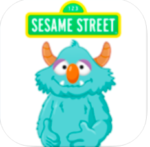Social-Emotional Learning (SEL)
This article gives 5 easy Social Emotional Learning (SEL) activities to do at home with your children.
This article gives educators five ways to help students in trauma.
Using this 60-second strategy with a jar and pom-poms, teach students social and emotional learning skills.
Incorporate social-emotional learning into family time. LitLife has gathered their favorite 7 Strengths-based activities you can use at home.
Amani Project is a family of local organizations that teach young people 8-14 years old music-making and emotional intelligence through a do-it-yourself curriculum.
Aperture Education has made a collection of free parent resources to use at home to help their kids (and them) develop social and emotional skills.
Use these Arthur activities to help children understand themselves and those around them. Topics include self-esteem, understanding others, and cultural diversity.
The Changemaker Schools Network is a global community of leading elementary, middle, and high schools that prioritize empathy, teamwork, leadership, problem-solving, and changemaking as student outcomes. Ashoka’s Start Empathy Initiative is a collaborative platform for social entrepreneurs, educators, and citizens whose ideas and talents can contribute to the creation of a world where every child masters empathy. Ashoka has a three-part strategy which includes accelerating empathy entrepreneurs, partnering with top schools, and changing the conversation to shift societal views of empathy.
Innovageous has offered a Restorative Conversations printable bookmark for simple discussions with children and youth centered in restorative practices. Bookmarks include sentence starters and reflection questions.
From making a movie chronicling daily emotions to creating a self-image map, BrainPOP’s SEL-themed collections provide related movies, learning games, and creative activities!
Through the BrainZones model, both students and educators learn to interface with a language, that not only communicates how they are feeling, but also incorporates an understanding of how those emotions impact both thinking and actions.
Breathe, Think, Do with Sesame by Sesame Workshop. Available for iOS and Droid, and in both English and Spanish, this app offers Interactive cartoons which teach how to deal with frustration, separation anxiety, disappointment, impatience, and fear of the dark. It suggests using a “breathe, think, and do” strategy — breath slowly three times, think of a plan (three plans per problem are suggested), then do it.










